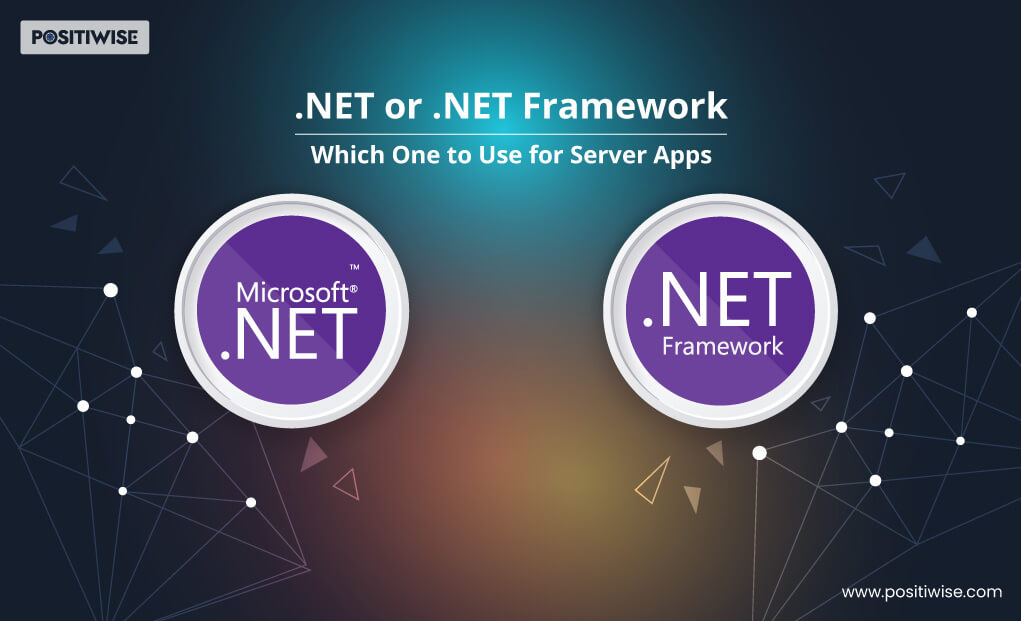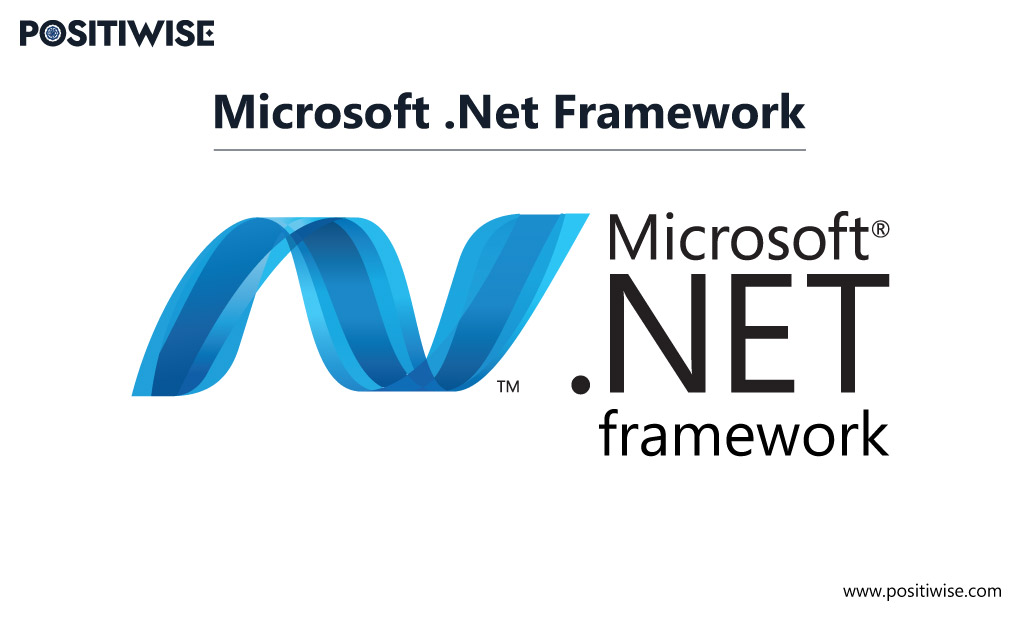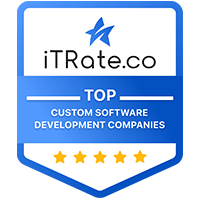Quick Overview:
Server apps build the foundation of a smooth experience, as they are responsible for executing requests at a phenomenal speed. The complete client-server architecture can suffer if such apps lack performance, security, or scalability. While building any server application, you must ensure that the technology getting used offers every required feature and functionality. To help you with choosing the right tech stack, we have provided the key differences between the .NET and .NET frameworks, the two most reliable server app development techs.
Introduction
As we all know, the .NET ecosystem offers an exclusive range of development technologies. The .NET and .NET frameworks are the two most popular and contrasting techs among them. Primarily, professionals consider it for server as well as client application development.
However, sometimes, the debate continues for too long to choose between these for server apps. But, no more debate and confusion, as here we are going to look into key differences between the .NET and .NET framework. As a result, you will know which technology to use during which use case.
So, let’s get started.
Why Consider .NET and .NET Framework for Server Apps Development?
Before diving into the details, let’s have an overview of how they can be a good choice for server app development. Here, we’ll get to know about some similarities between these technologies.
- They are developed, maintained, and supported by Microsoft.
- Both technologies have a rich and extensive community of professionals present globally.
- Top applications running worldwide are based on .NET or .NET frameworks.
- The performance, speed, and security of both technologies are phenomenal.
- Hardware, software, and human resources can easily be found.
Key Differences Between .NET and .NET Framework
Understanding the key differences between these for server applications is quite effortless. By learning about their fundamentals, benefits, and top use cases, you will know which technology you have to use and when.
In addition, you must also remember that .NET and .NET frameworks are the products of Microsoft. It provides two primary implementations as follows:
- .NET enables the implementation of .NET Core and .NET versions, such as .NET Core 3.1, .NET 5, .NET 6, and later versions.
- .NET Framework leverages to use only .NET Framework versions from 1.0 to 4.8.
Alternative #1: .NET
As you know, .NET is a development technology built and supported by Microsoft. You can consider it as a complete platform that can help to develop multiple types of applications, including enterprise solutions, games, IoT, mobile, desktop, web, and more. It’s free to use, and anyone can download it for curating the software for commercial or personal purposes.
The .NET platform or development technology is seamlessly supported by all significant operating systems, namely Windows, macOS, and Linux. In addition, it supports some advanced object-oriented programming languages, like C#, F#, and VB (Visual Basic). It leverages the businesses to select the language of their choice to create a robust and high-performing application.
Additionally, .NET offers one consistent API benefit, which can be used for all the .NET-based applications. You can also integrate a third-party API to extend functionality and collaboration across operating systems. Furthermore, it supports building all major application models, consisting of:
- Web App
- Mobile App
- Desktop App
- Microservice-based App
- Cloud-based App
- ML Integrated App
- Game App
- IoT App
.NET benefits for server app development
.NET provides some top-notch benefits, as below, that outstand it from other server app development technologies:
- It can process 7.02 million requests per request with the utmost quality.
- Its built-in security mechanisms highly support retaining data integrity and confidentiality.
- The app built using .NET can run on any desktop and mobile operating system.
- The development and maintenance costs are quite low compared to other tech stacks.
- Several .NET development and maintenance tools are available for free.
- It leverages strong Microsoft and community support.
- It enormously helps in improving productivity, performance, and scalability.
The Top Use Cases
Let’s look at the top use cases of .NET development technology. Once you undergo this section, you will know when to use .NET for your server application development. The use cases are:
When You Need Cross-Platform Compatibility
If you want your server application to run on all major operating systems, then .NET must be a choice. It can make your software compatible with Windows, macOS, and Linux. In addition, when you hire dotnet developers, they also prefer using .NET for cross-compatible applications.
Further, it also leverages the use of .NET Core, which is an advanced development tech in the same ecosystem. Also, .NET helps to boost development, as it’s supported by Visual Studio IDE, Sublime, IntelliSense, and Emacs.
When You Want Microservices Architecture
You can fulfill the need for microservices architecture with the .NET platform. It aids in building .NET sever application communication with software based on another language, such as Java and Python. A .NET development company can effortlessly help you configure the Azure platform for such purposes. In addition, even if you want stateless microservices, it’s possible with .NET.
When You Want Scalable System
.NET includes .NET Core, ASP.NET Core, and all associated technologies. If you choose .NET, you get the advantage of using any of the tech included in the environment. Thus, the possibility of scaling up the application with business growth will exponentially increase. Also, you will gain the benefit of additional security, third-party integrations, and easy availability of resources.
When You Want .NET Version At Per App Level Simultaneously
Every .NET version comes with an upgradation, but sometimes it’s not possible to upgrade all services with it. In environments where you need a different version to run for every individual service, you should choose .NET. It allows side-by-side execution of multiple services, running different .NET versions on a single server.
Alternative #2: .NET Framework
.NET framework is also used for developing applications, and it’s a part of the .NET ecosystem. However, you can only develop Windows-compatible software with it. As compared to .NET, its platform compatibility is only with one operating system, i.e., Windows OS.
.NET framework is also considered the original .NET implementation, as it supports the development of Windows desktops and services. Additionally, a common aspect between these are that both technologies support C#, Visual Basic, and F# languages. You can utilize any of the available languages per your convenience and requirements.
Currently, Microsoft only supports version 3.5 SPI and from 4.6.2 to 4.8.1 of the .NET framework. For building server apps, you must consider using only these versions. Moreover, before you finalize any aspect, consult with a .NET development company.
- .NET Framework runs only on Windows OS.
- .NET framework is not open-source, but .NET is open-source.
- Most of the new-age advancements are seen in .NET rather than .NET framework.
- .NET framework is, by default, present in every Windows machine, whereas .NET is available for download in a separate installation package.
The Benefits of .NET Framework for Server Applications
Below are the top benefits of the .NET framework that every developer and business must know:
- It leverages to use F#, C#, and Visual Basic.
- It enables the build of Windows native applications.
- Several pre-built templates are available for .NET framework server app development.
- The resources and documentation are easy to find.
- The community is quite mature compared to the .NET community.
The Top Use Cases
Remembering .NET framework use cases is one of the most straightforward tasks. Only two primary scenarios exist when the .NET framework gets preferred over .NET. The first case is when you need to create a server app only for Windows users. The second case is when you want to use packages and technologies not compatible or available for .NET.
Below are the technologies which you can only find in the .NET framework:
- ASP.NET Web Forms
- ASP.NET Web Pages
- Windows Workflow Foundation
- Workflow Services
- WCF Data Services/ADO.NET Data Services
How To Hire Dotnet Developers For Server-Side Applications Development?
The most affordable and reliable way to hire .NET developers is to collaborate with a .NET development company. Many firms, such as Positiwise Software, have been in the .NET domain for 15+ years, curating solutions for small, medium, and large-scale enterprises. In addition, you will even get a free consultation and detailed guidance on choosing between .NET and .NET frameworks.
Moreover, you will get the following benefits from a .NET development firm:
- Seamless communication and 100% transparency
- The most affordable and flexible pricing
- Handling of projects by experienced Agile masters and managers
- Dedicated development, maintenance, and support teams
- Leverage to build a solution per growing business needs
- Assurance of top-quality performance, security, and scalability.
The Final Decision
As you know, Microsoft supports the .NET and .NET frameworks, and plenty of resources are available for both. However, the primary difference comes in the platform compatibility, use cases, and availability of some packages and technologies.
If you want a cross-platform compatible server application with microservices, containers, and side-by-side versioning, then .NET must be your choice. On the other hand, if you want your server application to run only on Windows OS. And if you want to use ASP.NET web form and services associated with Workflow, then .NET framework should be your choice.
The task is simple: clarify your use case, and you will know what to choose. In case you are unable to do so, consult with a .NET development company or hire dotnet developers.
Expert in Software & Web App Engineering
Parag Mehta, the CEO and Founder of Positiwise Software Pvt Ltd has extensive knowledge of the development niche. He is implementing custom strategies to craft highly-appealing and robust applications for its clients and supporting employees to grow and ace the tasks. He is a consistent learner and always provides the best-in-quality solutions, accelerating productivity.






